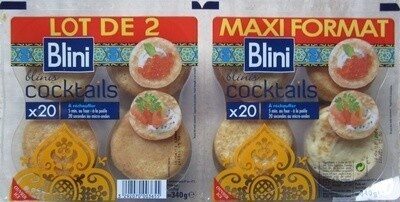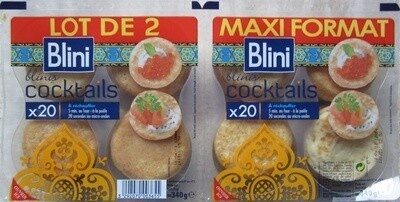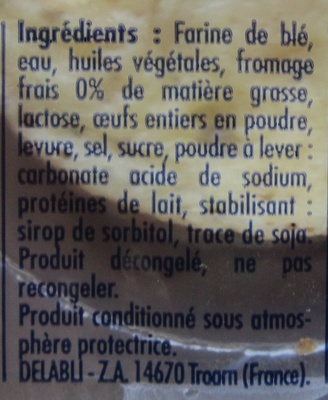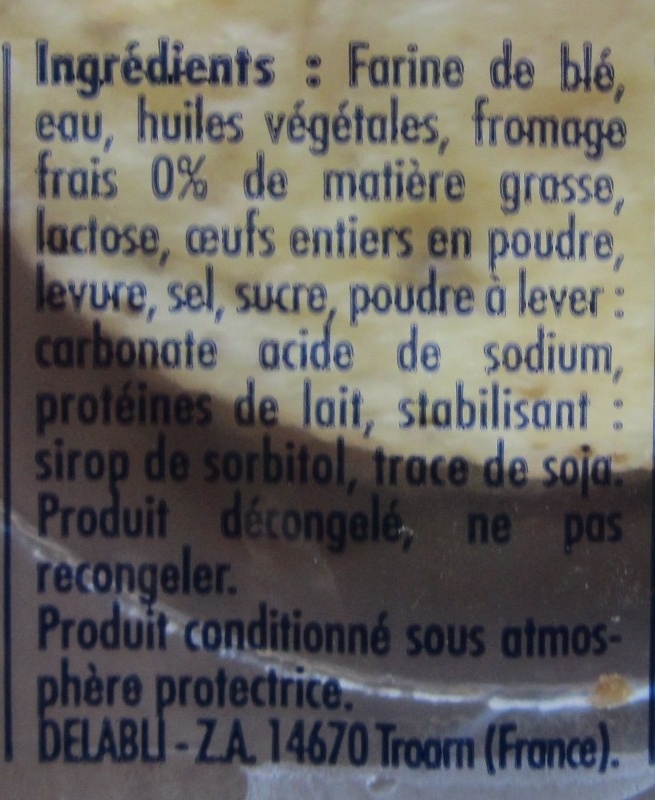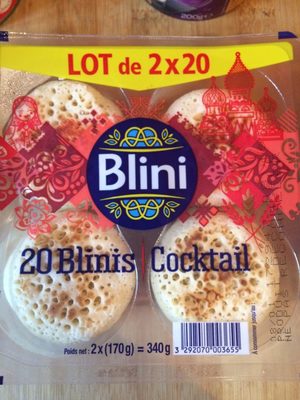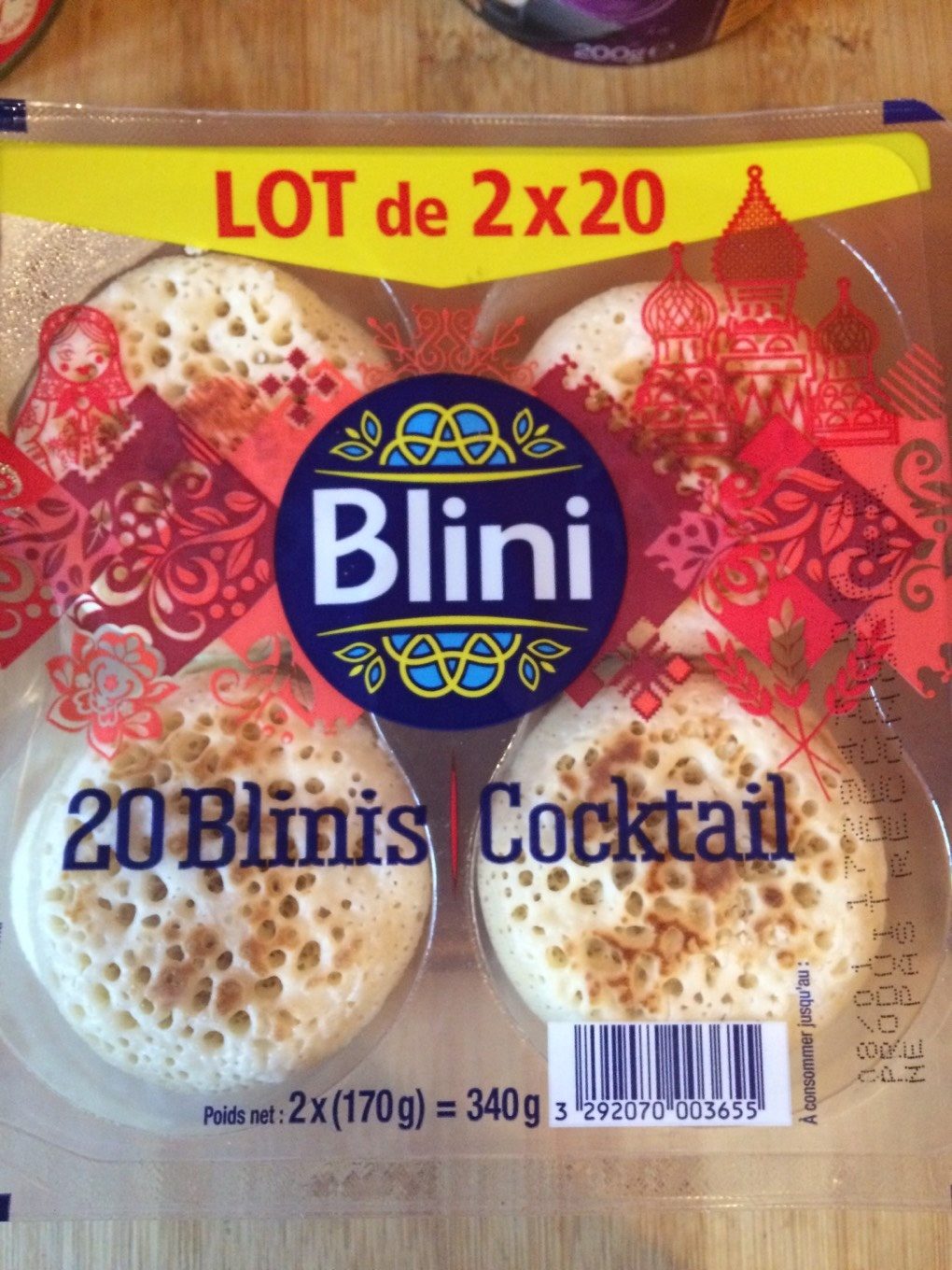Blinis cocktails - Lot de 2 Maxi Format (x 20) - Blini - 340 g (2 x 170 g)
This product page is not complete. You can help to complete it by editing it and adding more data from the photos we have, or by taking more photos using the app for Android or iPhone/iPad. Thank you!
×
Barcode: 3292070003655 (EAN / EAN-13)
Common name: Blini
Quantity: 340 g (2 x 170 g)
Packaging: Plastic, Fresh, Protective gas, Tray
Brands: Blini
Categories: Snacks, Salty snacks, Appetizers, Fresh foods, fr:Blinis
Labels, certifications, awards:
Green Dot, fr:Eco-Emballages
Manufacturing or processing places: Delabli (Filiale Labeyrie Fine Foods) - 369 Rue des Artisans - Zone d'Activités - 14670 Troarn, Calvados, Basse-Normandie, France
Traceability code: FR 14.712.042 CE - Troarn (Calvados, France)
Link to the product page on the official site of the producer: http://www.blini.fr/nos-produits/blinis/...
Countries where sold: France
Matching with your preferences
Environment
Carbon footprint
Packaging
Transportation
Report a problem
Data sources
Product added on by stephane
Last edit of product page on by packbot.
Product page also edited by big-brother, date-limite-app, ecoscore-impact-estimator, jacob80, jeremy64, kiliweb, manu1400, openfoodfacts-contributors, tacite-mass-editor, yuka.WTY4aE12NER2cWdubGZaai9EZk4wNDlrNXNHT0JuKytCOWNPSVE9PQ, yuka.sY2b0xO6T85zoF3NwEKvlnxpTcbH_w3kCxrnkhS05ueRLrWyRfdxxbHQFKs.
